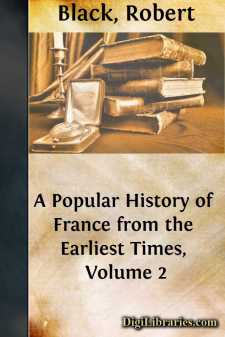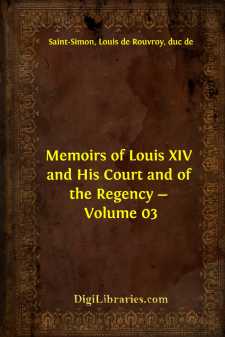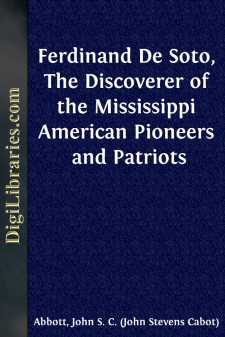Categories
- Antiques & Collectibles 13
- Architecture 36
- Art 48
- Bibles 22
- Biography & Autobiography 815
- Body, Mind & Spirit 144
- Business & Economics 28
- Children's Books 18
- Children's Fiction 14
- Computers 4
- Cooking 94
- Crafts & Hobbies 4
- Drama 346
- Education 58
- Family & Relationships 59
- Fiction 11834
- Games 19
- Gardening 17
- Health & Fitness 34
- History 1378
- House & Home 1
- Humor 147
- Juvenile Fiction 1873
- Juvenile Nonfiction 202
- Language Arts & Disciplines 89
- Law 16
- Literary Collections 686
- Literary Criticism 179
- Mathematics 13
- Medical 41
- Music 40
- Nature 179
- Non-Classifiable 1768
- Performing Arts 7
- Periodicals 1453
- Philosophy 65
- Photography 2
- Poetry 896
- Political Science 203
- Psychology 44
- Reference 154
- Religion 515
- Science 126
- Self-Help 85
- Social Science 82
- Sports & Recreation 34
- Study Aids 3
- Technology & Engineering 59
- Transportation 23
- Travel 463
- True Crime 29
Our website is made possible by displaying online advertisements to our visitors.
Please consider supporting us by disabling your ad blocker.
The Olden Time Series, Vol. 3: New-England Sunday Gleanings Chiefly From Old Newspapers Of Boston And Salem, Massachusetts
Categories:
Description:
Excerpt
NEW-ENGLAND SUNDAY.
Seeing in an old paper that General Washington was stopped by a "tythingman" in Connecticut in 1789 for the "crime" of riding on Sunday, we were naturally led to think about the "Sabbath question," as it is sometimes called. We find the account referred to in the "Columbian Centinel" for December, 1789.
THE PRESIDENT AND THE TYTHINGMAN.
The PreÐâ¦ÐÑident, on his return to New-York from his late tour, through Connecticut, having miÐâ¦ÐÑÐâ¦ÐÑed his way on Saturday, was obliged to ride a few miles on Sunday morning, in order to gain the town, at which he had previouÐâ¦ÐÑly propoÐâ¦ÐÑed to have attended divine Ðâ¦ÐÑervice.—Before he arrived, however, he was met by a Tythingman, who commanding him to Ðâ¦ÐÑtop, demanded the occaÐâ¦ÐÑion of his riding; and it was not until the PreÐâ¦ÐÑident had informed him of every circumÐâ¦ÐÑtance, and promiÐâ¦ÐÑed to go no further than the town intended, that the Tythingman would permit him to proceed on his journey.
This Sunday question has been so often discussed of late years, and the opinions expressed on the same are so diverse, that it may be well to print a few selections on the subject from some of the old newspapers, that those who are interested may see, as a matter of curiosity, if for no other reason, what views have been entertained within the past century, more especially in New England, in reference to Sunday.
In a Salem paper of 1775 the following notice appeared:—
Whereas the sober and thoughtful People of this Town are much displeased by the great Noise and Disturbance made in the Streets, on Saturday and Sabbath Day Evenings. It is earnestly desired that all Heads of Families would keep their Children and Servants at Home, on those Evenings, and thereby greatly contribute to the Quiet of the Town and Peace of the Inhabitants.
The appearance of Essex Street in Salem at the present time on Saturday evening would seem to indicate that "heads of families" do not now "keep their children and servants at home."
From a communication in the "Massachusetts Centinel," April 30, 1788, "riding on the Sunday" is held to be a "flagrant crime."
For the CENTINEL.
As the devoting one day in Ðâ¦ÐÑeven to religious purpoÐâ¦ÐÑes is a bounden duty we owe to God our creator, and a moÐâ¦ÐÑt reaÐâ¦ÐÑonable law of our Commonwealth—to Ðâ¦ÐÑee people riding on the Sunday in purÐâ¦ÐÑuit of their worldly affairs, is Ðâ¦ÐÑo diÐâ¦ÐÑguÐâ¦ÐÑting to the man of true principle, that the neglect of our executive authority of Ðâ¦ÐÑo flagrant a crime, is to be lamented. The common practice of a Mr. C——fl——n of H-pk——n is notorious on this account. Would not wiÐâ¦ÐÑh to traduce the character of any man, but would only query, whether Ðâ¦ÐÑuch conduct is not highly reprehenÐâ¦ÐÑible, and deÐâ¦ÐÑerving the cognizance of the magiÐâ¦ÐÑtrate.
Suffolk.
This is not at all strange from the point of view from which Sunday was then regarded. Indeed many people feel about the same now. They would have the old laws enforced in regard to riding and neglect of public worship. They have fears that the day may degenerate into a European Sunday, with prayers in the morning and amusements in the afternoon and evening....


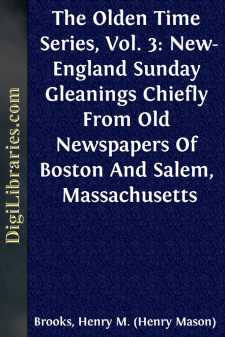
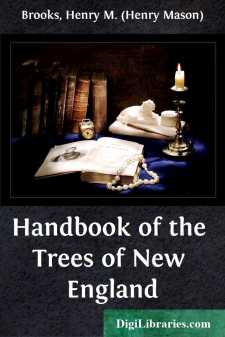
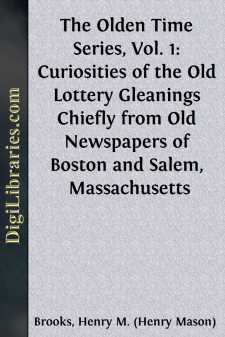
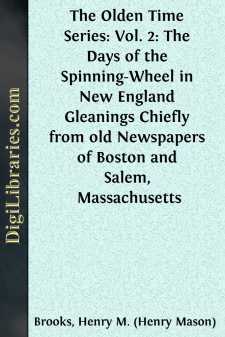
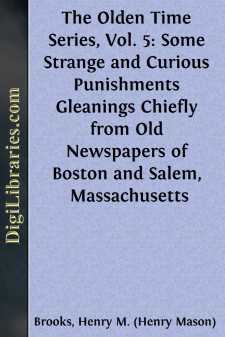
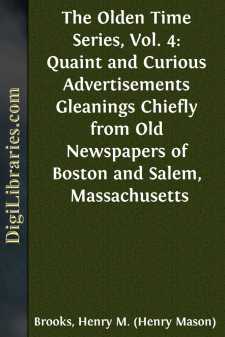
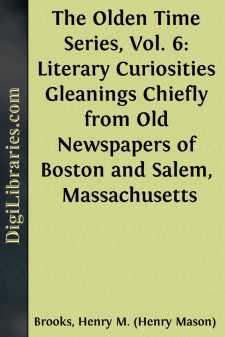
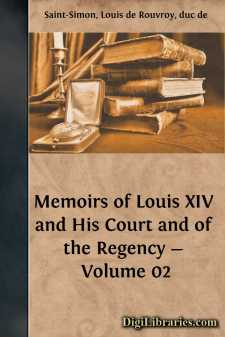
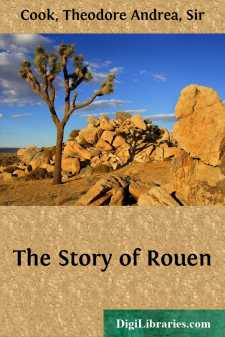
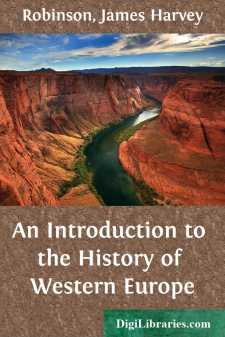
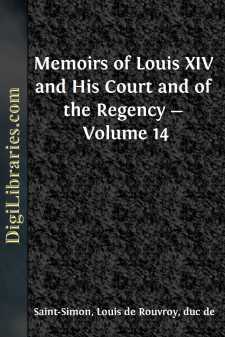
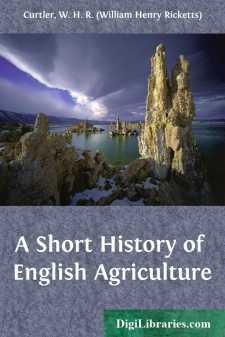
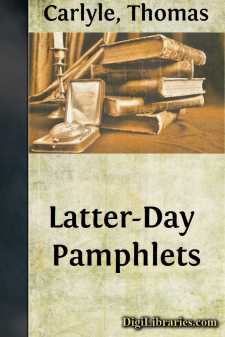
![The Memoirs of Cardinal de Retz - Volume 3 [Historic court memoirs]](https://digilibraries-com.s3.eu-central-1.amazonaws.com/covers/00c6f9da-62f3-4c9f-bc6d-2892cbbd95c8.jpg)
